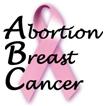Rosenberg's testimony
Preceding Dr. Lynn Rosenberg's testimony is a note from Dr. Brind with regards to its content. Following this content is a commentary from The Coalition on Abortion/Breast Cancer.
The state of Florida is in court defending its new law against a lawsuit by a group of abortion clinics represented by the Center for Reproductive Law and Policy. The expert
witness in question is Dr. Lynn Rosenberg of Boston University Medical School, an epidemiologist who has staunchly denied the abortion-breast cancer connection for many years--even as her own research has provided evidence for it. "The first aspect of the link," according to Dr. Joel Brind, "is actually not disputed by those who deny a connection, but it has been covered up by clever wording, with statements such as: 'It's not the abortion that increases the risk of breast cancer, it's just that the woman does not get the protective effect of the full term pregnancy that the woman would have gotten had she had a full term pregnancy.' "Can you imagine," he writes, "a skydiver's widow suing the guy who folded the parachute that didn't open, and the attorney for the parachute-folder trying to tell the court: 'He didn't get killed because the parachute didn't open; he got killed because he jumped out of the plane!'? What happened in the Florida case was that Dr. Lynn Rosenberg was confronted in that Florida court room with unequivocal wording, and here it is verbatim":
Question by the attorney: 'So in other words, a woman who finds herself pregnant at age 15 will have a higher breast cancer risk if she chooses to abort that pregnancy, than if she carries the pregnancy to term, (is that) correct?'
Dr. Lynn Rosenberg: 'Probably, yes.'
Question: 'Looking at that another way, let's compare two women. Let's say both got pregnant at age 15--one terminates the pregnancy, but the other carries the pregnancy to term. And both women go on to get married and have two kids, say, at age 30 and age 35. Is the risk of breast cancer higher for the woman who had an abortion at age 15 or the woman who had a baby at age 15, all other things being equal?'
Dr. Lynn Rosenberg: 'It's probably higher for the one who had an abortion at age 15.'"
"So here is a pro-choice epidemiologist testifying in court for the abortion clinics who are fighting a Florida law mandating that women and girls be informed of the increased risk of breast cancer associated with induced abortion agreeing with the expert witness for the State of Florida, Dr. Brind, on the positive A-B-C link," said Dr. Brind.
Our Commentary:
Dr. Rosenberg's statement recognizes what is already is universally accepted by medical experts: that an early first full term pregnancy has a protective effect against breast cancer. This is the first way in which abortion causes this deadly disease. This fact alone should be enough to motivate all abortion providers and women's groups, who profess to care about women's health, to inform abortion-bound women that induced abortion will cause them to forgo this protective effect.
In particular, women with a family history of breast cancer need to take every precaution available to them in order to avoid this deadly disease. Women would benefit greatly if abortion providers would ask them for their family's medical history prior to their abortions. Abortion providers and women's groups should especially discourage those with a family history of breast cancer from procuring induced abortions. Dr. Janet Daling and her colleagues at the Fred Hutchinson Cancer Center reported an 80% increased risk of breast cancer for women with a family history of the disease. Her study revealed a synergistic effect between induced abortion and family history. In other words, the two factors combined had a greater effect than if each were added together. Moreover, teenagers under the age of 18 who procured abortions were found to more than double their risk of getting breast cancer; but, even more significantly, teenagers with a family history of the disease, who procured abortions, were found to have an increased risk that was incalculably high. All 12 women in her study with this history were diagnosed with breast cancer by the age of 45. 1
- 1. Janet R. Daling et al., “Risk of Breast Cancer Among Young Women: Relationship to Induced Abortion,” 86 Journal of the National Cancer Institute, 1584, 1994


